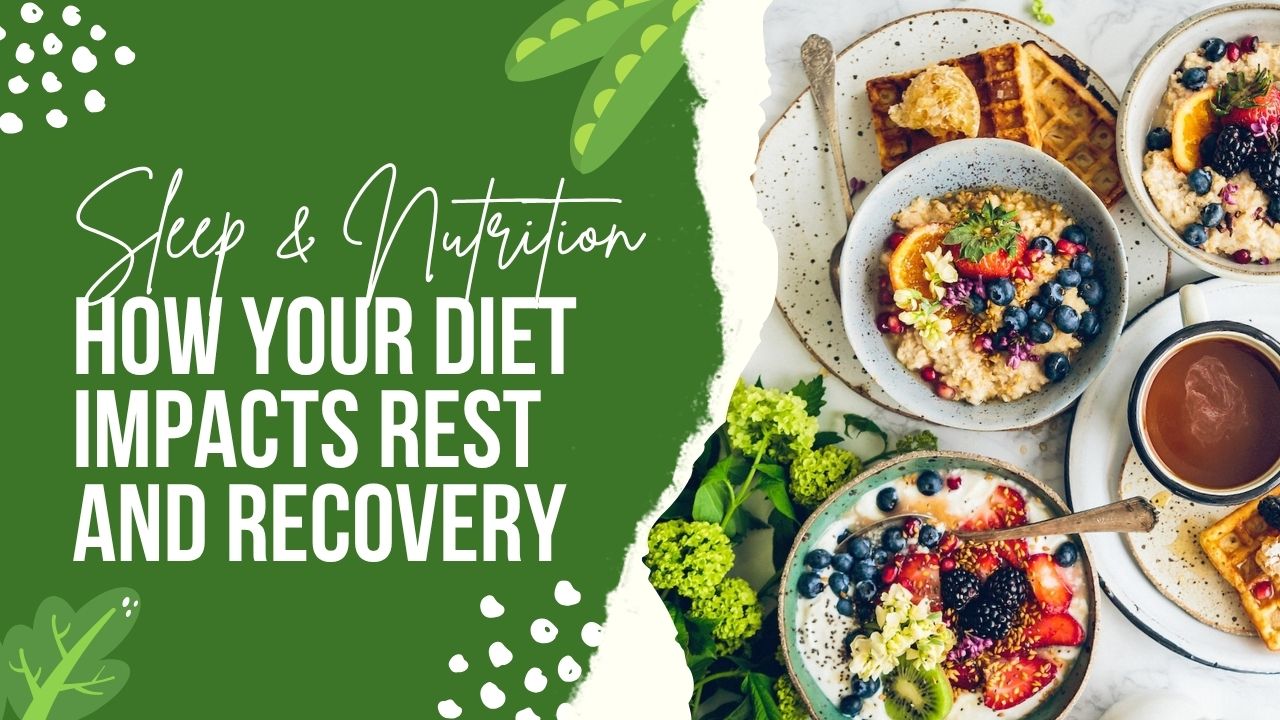

We’ve all been there – looming deadlines, caffeine in one hand, and the brave thought: “I’ll just pull an all-nighter, what’s the worst that could happen?” Well, turns out, a lot!
For years we’ve been told to eat right, move more, and manage stress to prevent chronic diseases. But guess what often gets shoved under the rug? Sleep. Yes, those 7–8 golden hours that we proudly sacrifice to “get things done.”
Here’s the twist: sleep is now being taken as seriously as diet and exercise in the prevention and management of chronic diseases. Why? Because science says so!
Studies show:
Even data from NHANES revealed that compared to “normal sleepers” (7–8 hrs), short sleepers eat fewer nutrients and snack way more. And when researchers restricted sleep in experiments? Fat-rich snacks became the go-to.
Meals during the day may be impacting your sleep more than you realise Let’s break down how your plate shapes your pillow time.
Micronutrients for a sound sleep
The micronutrients are responsible to help you sleep better.
Role of micronutrients in good sleep and food sources
| Nutrient | Why It Matters for Sleep | Top Food Sources (including cultural options) |
| Zinc | Supports sleep onset & efficiency | Pumpkin seeds, cashews, chickpeas, lentils, oysters, beef, mung beans, sesame seeds (til), bajra (pearl millet) |
| Iron | Prevents restless legs & fatigue | Red meat, chicken, spinach, lentils, kidney beans, fortified cereals, jaggery (gur), drumstick leaves (moringa), black chana |
| Vitamin C | Aids restorative sleep & reduces oxidative stress | Citrus fruits (orange, kiwi, lemon), strawberries, bell peppers, broccoli, amla (Indian gooseberry), guava, papaya, curry leaves |
| Selenium | Linked to better sleep quality & reduced insomnia risk | Brazil nuts, sunflower seeds, tuna, sardines, eggs, whole wheat chapati, brown rice, garlic, onions |
| Calcium | Helps the brain use tryptophan to make melatonin | Milk, yogurt, cheese, tofu, almonds, leafy greens, ragi (finger millet), sesame seeds (til), paneer |
| Magnesium | Relaxation mineral – calms muscles & nerves | Dark chocolate, spinach, pumpkin seeds, black beans, whole grains, lotus seeds (makhana), cashews, rajma (kidney beans) |
| Vitamin D | Regulates sleep-wake cycles & supports melatonin production | Fatty fish (salmon, mackerel), egg yolks, fortified dairy, mushrooms, sunlight, fortified atta, ghee, curd |
Fats & Stimulants – Not just for calories .
Tryptophan – The Sleep Whisperer
Some foods are basically lullabies in disguise.
Takeaway:
When you nourish your body with the right foods, your sleep quality improves – making it easier to drift into restful, restorative nights. On the other hand, when you sleep well, your body naturally regulates cravings, energy, and appetite, helping you make healthier food choices throughout the day.
Disclaimer: The information provided in this blog is sourced from research articles and reputable websites. However, as each individual’s body and health needs are unique, it is essential to consult with your doctor, dietitian, or healthcare provider for personalised advice and plans tailored specifically to your condition.
Acknowledgement: I would like to extend my heartfelt gratitude to our CEO, Purva Gulyani – Accredited Practising Dietitian, for providing me with the opportunity to contribute to this blog. Your valuable feedback, along with your time spent proofreading and editing, has greatly enhanced the quality of this work. Your guidance and support are truly appreciated.
References:
Nedeltcheva, A. V., Kilkus, J. M., Imperial, J., Kasza, K., Schoeller, D. A., & Penev, P. D. (2009). Sleep curtailment is accompanied by increased intake of calories from snacks. The American journal of clinical nutrition, 89(1), 126-133.

Purva Gulyani – an Accredited Practising Dietitian and lifelong member of the Indian Dietitian Association. Currently pursuing PhD at Latrobe University. Purva brings over 16+ years of clinical dietitian experience to the table.




Commence your transformative journey to wellbeing today, taking the initial stride towards a healthier, happier you. Embrace constructive alterations that lead to a brighter and more vibrant future.
